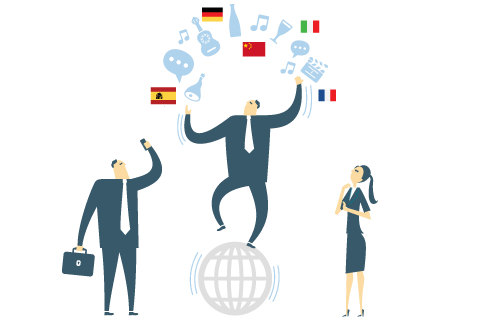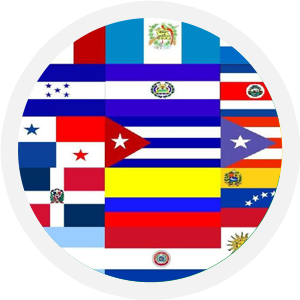CULTURAL TRAINING
BECOMING CULTURALLY COMPETENT
Knowing how to speak a language is only one part of effective communication; understanding the culture of a foreign country is essential to conducting business and avoiding misunderstandings. The Language Academy provides on-site cultural training workshops that address the business practices and key cultural differences of the countries where you do business.
Email: info@carolinalanguage.com
Phone: 704.548.0048

SAMPLE WORKSHOPS

LATIN AMERICA
Latin America as a term refers to everywhere from Northern Mexico to Tierra Del Fuego, Argentina. It is as diverse culturally and geographically as anywhere on Earth. The workshop begins with a general overview of Latin America, the terminology applied to the region, and its geographic areas, governments, people and customs. It then deals more specifically with doing business in Latin America and specific differences between Latin American culture and American culture. For example, how do we view their culture and how do they view ours? How can your employees avoid misunderstandings and embarrassing mistakes? This workshop will include understanding and interpreting attitudes, gestures, and general business practices.
BRAZIL
Brazil is the largest country in South America, encompassing nearly half of the continent’s geographic area. As a former Portuguese colony, Brazilians speak Portuguese, unlike the rest of South America which is primarily Spanish speaking. Brazilians are generally known as a happy people who love their soccer, samba and grilled meat, but the stereotypes belie a rich and nuanced culture, that combines its colonial and native pasts with its modern present, in a way unlike anywhere else in South America. This workshop will provide a window into the Brazilian soul, to help the participants succeed in business in this increasingly important market.
THE UNITED STATES
This training is specifically for foreign employees coming to work in the United States. It begins with a general overview of the United States, the terminology applied to the various regions, geographic areas, governments, people and customs. It then takes a close look at business relations and business practices. How are businesses organized in the U.S.? How do people communicate in business? At work, what is expected of both the employer and the employee? How can one avoid embarrassing mistakes and/or misunderstandings? We will work hands-on with the participant in order to help him or her understand modern American business culture.
![]()
GERMANY
This workshop examines the different regions and peoples of Germany as well as take a closer look at the cultural differences between Germany and the United States. What can you expect on your visit to Germany? How are German people different from Americans and how does that influence attitudes and performance in the workplace? Our goal is to foster better and more efficient communication between colleagues in the two countries.
MEXICO
Once seen as an emerging market, Mexico is now a major player in international business and manufacturing. Its proximity to the United States along with free trade agreements have made doing business in and with Mexico easier than ever. Its rich ancient and colonial heritages are major factors in defining Mexico and its people. It is a remarkably diverse country, both geographically and culturally. Ancient ways coexist and often collide with an ever-increasing modern identity. This workshop will deal specifically with Mexico, its different regions, people and business practices in order to engender a more profound understanding of this country.
ITALY
The distance from the Alps in the north to Sicily in the south, is about 750 miles, or 60 miles shorter than the drive from Charlotte to New York City. The differences across this relatively short distance, however, are staggering. This workshop will provide a general overview of Italy, the terminology applied to the various regions, geographic areas, governments, people, and customs. To create a comparison, this workshop will also take a close look at the United States and highlight some key similarities and differences between the two countries and their cultures.
